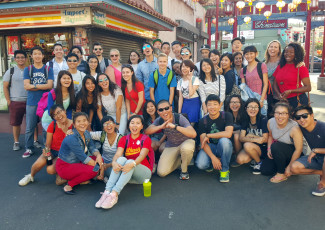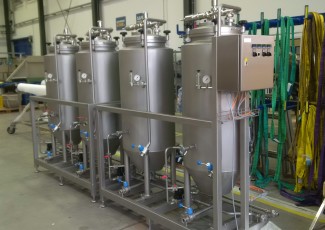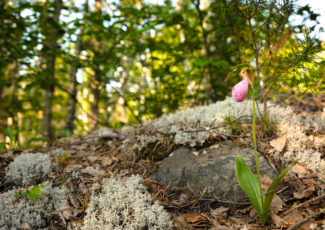Creating “Sustainability Knowledge” for the Future
By Ellen Ullman
February 1, 2016
From hosting “green” horticulture conferences to training students for the latest environmental jobs, Gateway Technical College has become a model of sustainability.
Almost 40 percent of community colleges have some sustainability curricula, according to Greenprint: A Plan to Prepare Community College Students for Careers in the Clean Economy, a new report from Jobs for the Future and the National Wildlife Federation. The report shares how community colleges have increased their training for green jobs and added an environmental focus throughout the curricula. It also highlights the ways community colleges have incorporated sustainability practices on their campuses and throughout their communities.
One college that has done everything it can to amplify the importance of sustainability work on college campuses is Gateway Technical College (GTC), in Wisconsin. “We play an important role in helping students understand the environmental impacts we all make,” says Bryan Albrecht, the college’s president.
GTC has infused sustainability in four key ways: in its instruction, throughout the community, in its operations and on its campuses.
Sustainability across the curriculum: GTC offers green education programs in HVAC, electrical engineering technology, civil engineering, fresh water technology, horticulture and urban farming. It has also diversified existing programs — adding hybrid training to the automotive technology program, for example. “We’ve added sections on water retention to our civil engineering courses and expanded our culinary programs to include homegrown products,” Albrecht says.
In 2009, GTC developed the Center for Sustainable Living on its Kenosha campus. The center, which sits on five acres, shows visitors how to incorporate sustainability into their lives and businesses. Several programs, such as horticulture and interior design, use the center for hands-on training. Horticulture students, for example, use the urban farm located on the grounds to plant and raise vegetables, herbs and flowers.
Sustainability across the community: GTC has spread its sustainability efforts to the local community by forming partnerships. For example, the college became active in the downtown-beautification committee, helping choose flowers and plants for different regions and becoming an expert voice. That relationship led to internship opportunities for students and helped college faculty share their knowledge. “Now, we’ve been asked to do landscaping projects for a local university and township,” Albrecht says.
Sustainability on campus: From hot-water solar systems to wind turbines to rain gardens, GTC works hard to increase energy efficiency and reduce its carbon footprint. “We are proactive in making sure our facilities are representative of our mission,” Albrecht says.
The college recycles everything from fluorescent lamps to aluminum cans and encourages everyone to ride bikes or drive greener vehicles by offering bike racks and hybrid-car parking spaces.
“We put automated controls in all of our buildings to monitor energy usage and are using room-scheduling software so we can reduce energy accordingly,” Albrecht says.
Sustainability among students: GTC students are encouraged to volunteer for community events such as Earth Day or do presentations on sustainability at local schools to earn points that allow the students to graduate as a green scholar. “Green” students can also join a club that goes on field trips to manufacturers to look at new materials.
The college offers international trips involving sustainability, too. This year, students will study geothermal technology in Iceland. In past years, they explored flower-growing in Holland and farming in Belize. The trips, which are led by a specific department and are related to class instruction, help students gain global skills and awareness.
Lessons to share: Incorporating sustainability helps you reflect on your own energy use and the impact you have on the environment, Albrecht says. In addition, some of these programs have helped the college become more engaged with the community. When GTC joined the downtown-beautification committee, the college had a voice in urban planning and connected students with new experiences and contacts.
Albrecht suggests building on the experience and enthusiasm faculty and students already have for sustainability. Often, the expertise and solutions are right in your own backyard.











